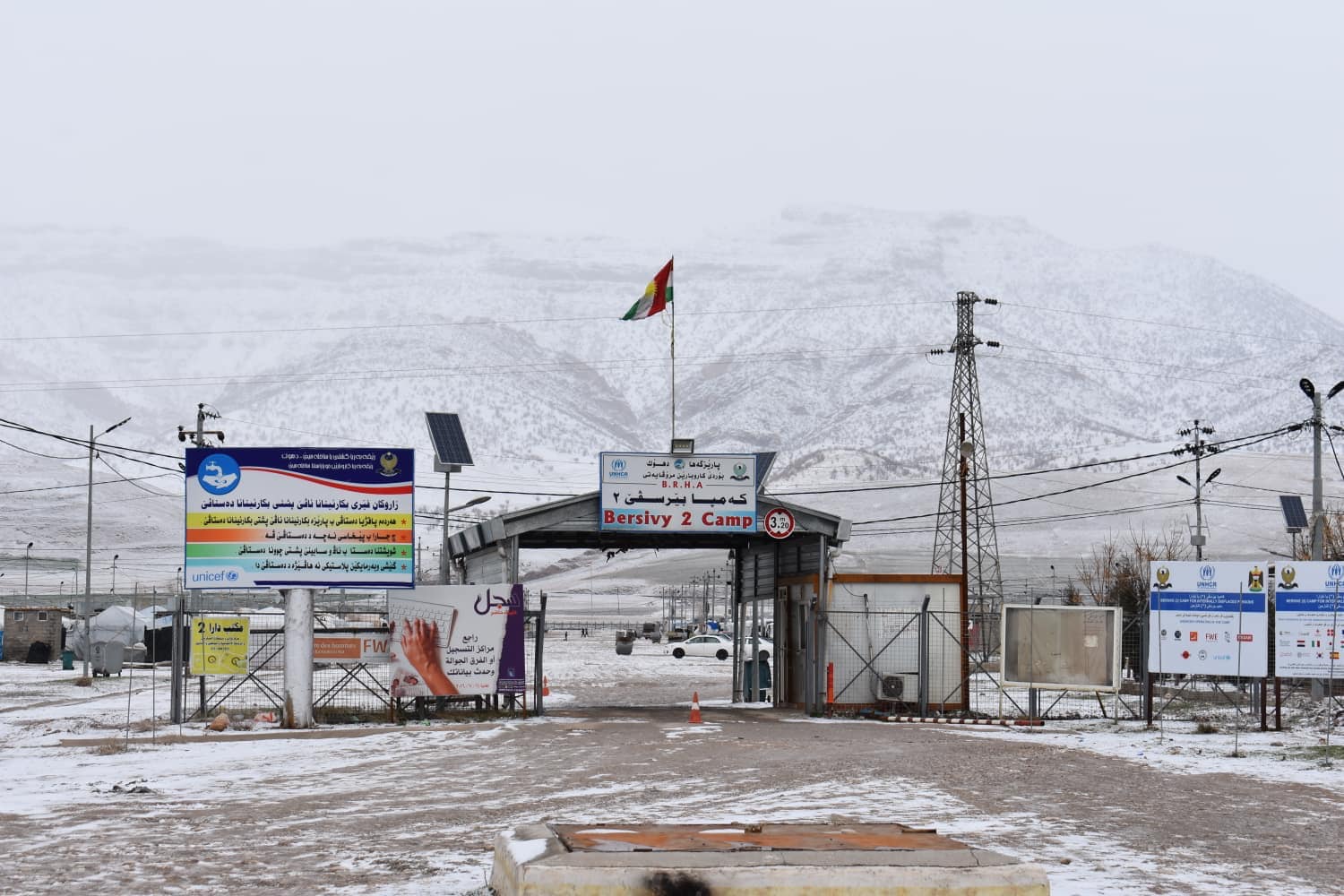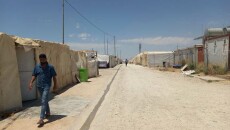144,000 liters of kerosene intended for the Internally Displaced Persons IDPs in Dohuk Northern Province arrived via four mobile tanks, but its distribution was postponed after it became clear that its “quality is poor.”
The kerosene to be used in heating was scheduled to be distributed to the displaced arrived in Dohuk last week.
Pir Dian Jaafar, Director of the Department of Migration, Displacement, and Crisis Response of the Kurdistan Regional Government KRG, told (KirkukNow) four tankers loaded with kerosene arrived from Kirkuk in preparation for distributing it to the displaced people residing in the camps and we sent samples of it to the laboratory for examination before starting distribution.”
“It turned out to contain a high percentage of sulfur, which could lead to fires,” according to Jaafar.
The Immigration Department in Dohuk addressed the Iraqi Ministry of Immigration and Displacement to find a solution to the problem, while the displaced are waiting to receive their shares.
Iskandar Muhammad Amin, director of the Iraqi Office of Immigration and Displacement in Dohuk, told KirkukNow, "We are also not in favor of distributing it to the displaced. In addition to its poor quality, we fear that it will lead to fire accidents."
Regarding the party responsible for providing the displaced with this portion of kerosene, Amin said that the Iraqi Ministry of Immigration and Displacement contracted with a company in Kirkuk in the months of July and August.
“Kerosene arrived last week, but it did not pass the inspection,” he added.
his problem faced only the displaced people of Dohuk
“This problem faced only the displaced people of Dohuk. The displaced people in Erbil and other regions were provided with oil and did not face a problem like this.”
There are more than 600,000 displaced people in the Iraqi Kurdistan Region, some of whom are distributed among 26 camps, 16 of which are in Dohuk, housing 26,000 families.
Kerosene was scheduled to be distributed to the displaced people last October, which forced some of the displaced people to buy kerosene from private petrol stations with the advent of winter.
"The tents are cold and the children are the first victims," Amin stressed that the problem increased the suffering of the IDPs.
In mid-November, Saad Abdullah, a father of three children residing in one of Dohuk’s camps, told KirkukNow that he did not have the ability to buy oil from the black market. “In the past 40 days, I only had work for two days, so how and with what can I buy oil?”
One barrel (200 liters) of commercial kerosene is sold over 180,000 Iraqi dinars IQD (USD135).
Each displaced family receives one barrel in two stages and at two different times, which is supplied by the government.
Regarding how to address the problem, Iskandar Muhammad Amin said, “The solution is to terminate the contract and conclude a new contract with the supplying company or any other company to provide high-quality kerosene. This is another problem because the procedures may take two months, and then it will be too late.”
Though the temperature is down at night north of Iraq, the IDPs in Dohuk have not received their annual shares of 200-liter free kerosene neither from the Iraqi government nor from the Kurdistan Regional Government KRG in order to use it for heating in cold weather as state power supply sharply drops downs due to high consumption.
A large part of the displaced are reluctant to return to their areas of origin due to the deteriorating security conditions, the lack of utilities, and the destruction of their homes.
This is not the first time that the distribution of kerosene has been delayed, and the displaced people also suffer from the absence of aid, the scarcity of drinking water, and the poor quality of food distributed to them by the Iraqi government.
Iraq’s November oil exports hit 3.433 million barrels per day (bpd), compared to 3.534 million bpd achieved in October, according to Oil Ministry.
November monthly revenues came in at $8.512 billion while in October it made $9.594 billion as the average per barrel sale price sliding to $82.7 from $87.6.
Iraq’s oil reserves are considered the world's fifth-largest with 140 billion barrels, the main source of revenues for the national budget.






